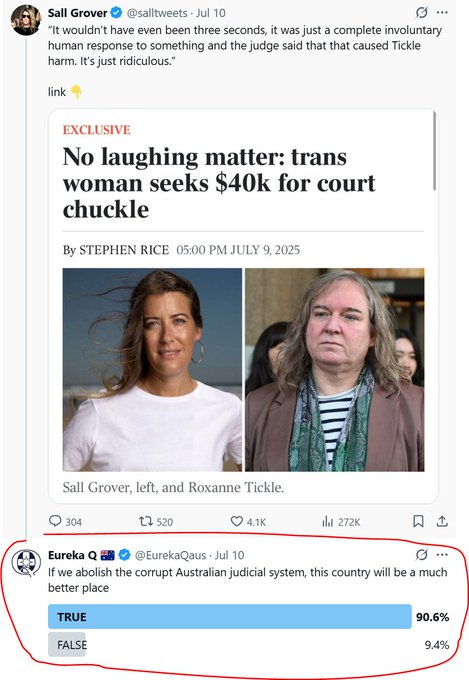People have voiced their strong desire for the abolition of the corrupt Australian Judiciary, calling for the people’s will to be respected.
Those who obstruct efforts to eradicate this perceived corruption are being warned that such actions could be viewed as treasonous and would not be taken lightly.
The call for justice reform has ignited fervor among the public, demanding accountability and transparency within the country’s legal system..
The Australian Judiciary has faced criticism in recent years over allegations of corruption, bias, and lack of accountability.
Calls for reform have intensified as concerns about the fairness and integrity of the justice system have grown.
The push to abolish what some perceive as a flawed system reflects a deep-seated frustration with the perceived injustices that have plagued legal proceedings in the country..
The debate surrounding the Australian Judiciary’s alleged corruption has sparked a national conversation about the need for systemic change.
Advocates for reform argue that a transparent and accountable judicial system is essential for upholding the rule of law and ensuring justice for all citizens.
The demand for action against corrupt practices within the judiciary signals a growing determination among the public to hold those in power accountable and restore trust in the legal system..
As the public outcry against the Australian Judiciary’s perceived corruption gains momentum, the government faces increasing pressure to address these concerns and restore confidence in the justice system.
The outcome of this movement could have far-reaching implications for the future of the judiciary and the broader legal landscape in Australia.
The call for accountability and transparency underscores the importance of upholding the principles of justice and fairness in a democratic society, setting the stage for potential reforms that could reshape the country’s legal framework..









Leave feedback about this